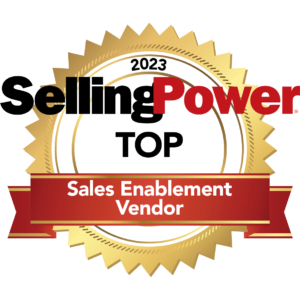Ban These Clichés from Your Selling Vocabulary
In his new book, one of the many hot-button topics author and speaker David Meerman Scott addresses is the role of authenticity in the sales profession.
The book,
The New Rules of Sales and Service: How to Use Agile Selling, Real-Time Customer Engagement, Big Data, Content, and Storytelling to Grow Your Business, specifically addresses a few key phrases that many salespeople use when talking about their companies or offerings:
We are the leading provider of…
Our service is second to none.
Our products are innovative/cutting edge/world class.
Do these clichés sound familiar? Time to ban them from your selling vocabulary! Scott argues that such stock phrases come across as empty and inauthentic to prospects and customers.
How so? For one thing, such claims are so pervasive that many customers hear them as background noise. Customers hear salespeople at almost all companies use these phrases, but can all those companies have “the latest” technology and “cutting-edge” offerings? It’s possible but not likely. Buyers know this, so when they hear these words, they automatically discount their authenticity.
Scott also skewers business-to-business technology companies for asking customers to put up with eye-glazing scripts and product pitches. He writes, “Can you imagine anything more boring than a 10-minute screen-by-screen demo by a product manager spouting industry jargon, boring buyers with all the best-of-breed, cutting-edge features of some mission-critical, flexible, and scalable solution that improves business processes using industry-standard technology?”
In part, the trouble starts with scripts provided by marketing. Many marketers avoid rolling up their sleeves and spending time in the market. Consequently, they never find out what customers’ real needs are and what value they’re willing to pay for. Instead, marketers end up generating scripts that feature “reverse-engineered language that they believe the buyer wants to hear based on the product’s features rather than on buyer input.” As a result, the salesperson who does the demo spews “superlative-laden, jargon-sprinkled, gobbledygook-filled hype.”
This, says Scott, is the old world of sales – and it’s a futile way to operate in today’s buying environment. Think of the psychology at work when salespeople claim their offering is “the best in the industry.” As Scott points out, the customer’s first thought is not an eager willingness to pay for the very best in the industry; it’s quite the opposite.
“Any claim that requires the buyer to infer that there are implied qualifications hiding within the pitch immediately raises skepticism,” Scott writes. “The phrase ‘the best in the industry’ forces a comparison that people weren’t necessarily making. You instantly divert people’s attention to the competition and what they might have to offer. ‘Oh, so you’re the best in the e-cigarette cartridge industry? That probably means there is a cheaper alternative.'”
When you talk with customers and prospects, think about what you’re really saying and whether you’re telling the real truth or some version of the truth that’s going to come back to haunt you later. As Scott notes, your customers can spot hypocrisy a mile away. Don’t give them a reason to doubt you.
Get our eNewsletter
Get the latest sales leadership insight, strategies, and best practices delivered weekly to your inbox.
Sign up NOW →